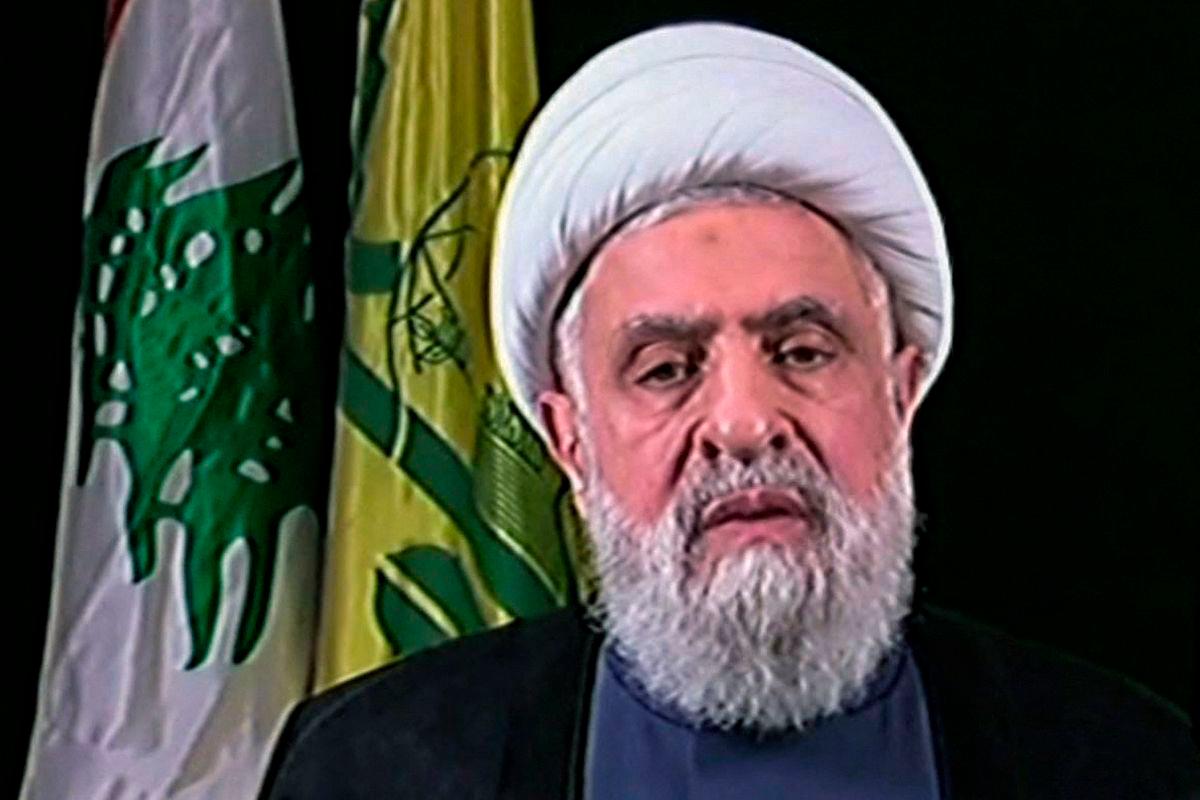BEIRUT: Iranian Foreign Minister Abbas Araghchi met with Hezbollah chief Naim Qassem, the Tehran-backed Lebanese group said Wednesday, with the militants under domestic and international pressure to disarm.
The statement did not specify where or when the meeting with Araghchi, who arrived in Beirut on Tuesday, took place.
Qassem, who took over last year after an Israeli strike killed the group’s longtime chief Hassan Nasrallah, thanked Araghchi for Iran’s “ongoing support for the Lebanese people” and Hezbollah.
He also told Araghchi of Hezbollah’s “work to revive Lebanon and its stability and sovereignty, and to expel the occupation from (Lebanese) territory”, the statement said, referring to Israel.
A November ceasefire largely halted more than a year of hostilities between Hezbollah and Israel including two months of all-out war that left the Iran-backed group heavily weakened.
Under the ceasefire, Hezbollah fighters were to pull back beyond the Litani River in the country’s south.
Israel was to withdraw all forces from Lebanon but has kept troops in five areas that it deems strategic and still carries out regular strikes on the country.
Lebanese authorities have vowed to implement a state monopoly on bearing arms amid international pressure including from Washington, though President Joseph Aoun has said disarming Hezbollah is a “delicate” matter that requires dialogue.
During the visit, Araghchi met senior officials on Tuesday including Aoun, Prime Minister Nawaf Salam, parliament speaker Nabih Berri, a close Hezbollah ally, and Foreign Minister Youssef Raggi.
Raggi said on X that he expressed “Lebanon’s hope that Iran remains committed to supporting our country’s security and internal stability”, including efforts to ensure “that arms are held solely by the state”.
On Wednesday, Araghchi on X said that during the trip he expressed his full support for Lebanon’s stability, sovereignty and territorial integrity.
“Our goal and hope is to open a new page in our centuries-long ties, built on mutual respect and common interests,“ he added.
A Lebanese official told AFP that the minister’s visit opened “a new page” in ties based on “non-interference”.
With Hezbollah weakened, Aoun and Salam took office after the war and following a more than a two-year leadership vacuum as the balance of power shifted.
Aoun said after his meeting with Araghchi that he emphasised the importance of dialogue in “resolving differences”, a presidency statement said, adding that post-war reconstruction was a priority for the authorities.
The conflict left swathes of the country heavily damaged, particularly Hezbollah strongholds.
On Tuesday, Araghchi told reporters that “Iranian companies are ready to take part in Lebanon’s reconstruction”.
He also laid a wreath at Nasrallah’s grave.









